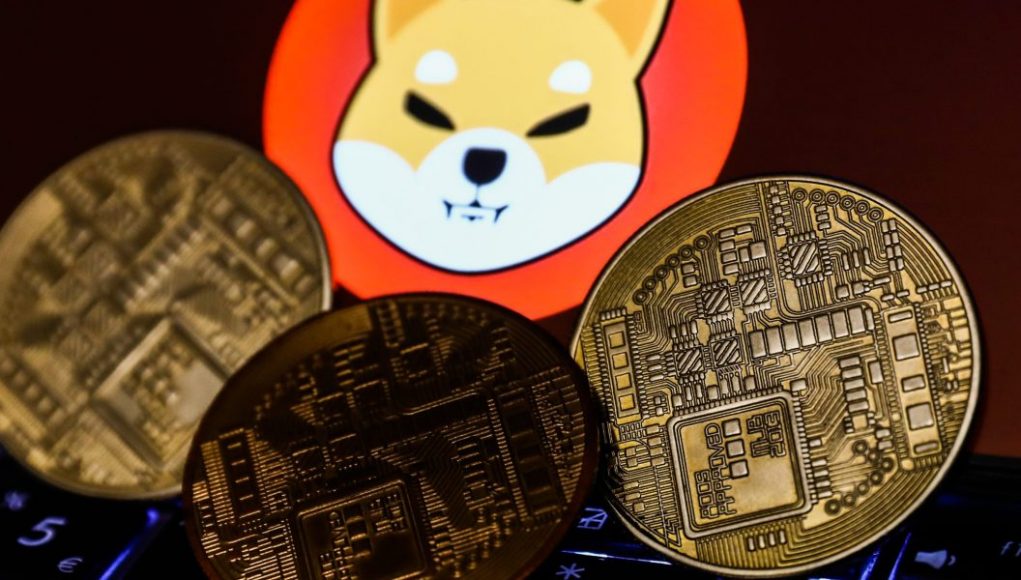
The unlikely star of the cryptocurrency world these days is Shiba Inu, named after the same breed of dog that inspired the market’s former unlikely meme-coin darling Dogecoin.
The total market value of the token soared to more than $51 billion last week, leapfrogging over Dogecoin and putting it among the top 10 cryptocurrencies in existence—despite the fact its provenance as a meme leaves it without much of a fundamental economic reason to thrive.
As the frenzy cooled off in recent days, yanking the coin’s market value down by 31% to about $35 billion, the crypto world’s attention has been fixated on the handful of “whale” wallets that control most of the Shiba tokens in existence. And there’s unsettling news for all the minnows who bought Shiba Inu and are sitting on paper gains of a lifetime: One of the whales has been moving the coins into different wallets, raising concern the holder is about to sell.
The dog-coin drama is the latest episode that highlights the fact that, despite an abundance of transparency in a market where every transaction is recorded on a blockchain for the public to see, the anonymity of the players involved—including, in this case, even the creators of the coin—leads to a house-of-mirrors effect because no one really knows exactly who is doing what.
“Legitimate crypto is fully transparent about transactions, code and other matters—but is usually opaque about matching transactions to individuals,” said Aaron Brown, a crypto investor who also writes for Bloomberg Opinion. “This is the opposite of the banking system, which is opaque about everything except personal identification.”
The ownership in Shiba Inu is especially concentrated. While some 872,382 total wallets hold it, the top 10 own almost 72% of the coin, according to tracker CoinMarketCap.com. The biggest wallet holds a whopping 41%—theoretically worth almost $21 billion at the peak. No. 2 currently holds a bit more than 7%, worth about $2.5 billion at current prices.
The token—known by its ticker SHIB—has been flying out of the No. 2 holder’s wallet at a fast clip.
“It looks like there were four transactions out of that account yesterday, each sending $695 million of SHIB to a different account—so a total of $2.78 billion,” said Tom Robinson, co-founder of Elliptic, which does blockchain forensics. “Whoever it is purchased the SHIB on Uniswap about a year ago, for not very much.”
Shiba Inu is not the first coin to trigger concern about high ownership concentration. Initially, Bitcoin and Ethereum were highly influenced by whales whose trades could sway market prices. Their ownership concentration has since declined, as more institutions and retail investors jumped into crypto. That said, even today about 2,000 addresses own more than 40% of all Bitcoin, per BitInfoCharts.
There are many pockets of the crypto market where coin ownership is still highly concentrated. Many of the smaller of the more than 13,500 cryptocurrencies are majority owned by a handful of wallets. In decentralized-finance apps, which create their own tokens to let people trade, lend and borrow from each other, a small percentage of users controls everything. Between 20 and 50 crypto-trading firms “are pushing most of the volume in crypto,” said Antonio Juliano, founder of DeFi exchange dYdX.
“I don’t think it’s so totally different than the way things work in traditional finance,” he said. “Big Wall Street funds push most of the volume.”
Still, a lack of regulation and official market surveillance leaves meme coins like Shiba Inu vulnerable to suspicion even as its surge in price brings it to a broader, mainstream audience. While it’s available for trading on Coinbase’s exchange, others such as Kraken and Robinhood have so far resisted—despite vocal lobbying from their clients.
“Legitimate crypto has a solid underlying economic case, its value does not depend heavily on who holds how much of it,” adds Brown. “But for crypto with no underlying economics—whose value is determined only by speculation—concentrated ownership suggests a rigged game.”



















































